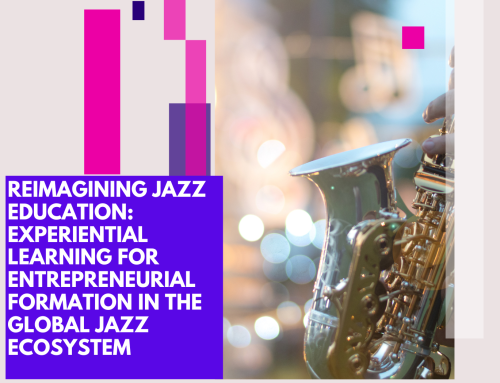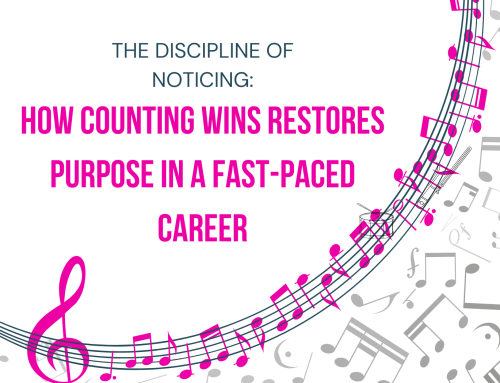By Dr. José Valentino Ruiz, Ph.D. and Kevin Maldonado
Abstract
This editorial explores the concept of relational intelligence as an essential yet often overlooked form of intelligence that goes beyond interpersonal skills. It examines how discerning relationships between people, systems, places, and purposes can unlock unexpected opportunities, foster creative growth, and align personal mission with evolving contexts.
Keywords: relational intelligence, creative entrepreneurship, systems thinking, opportunity design, interpersonal growth, vocational discernment, quality of life
Table of Contents
Beyond EQ to the Power of Relational Perception
In an age obsessed with metrics, algorithms, and transactional networking, it’s easy to overlook one of the most underrated yet critical skills of creative professionals, entrepreneurs, and community leaders: relational intelligence (RQ). Too often reduced to a buzzword about “getting along with others” or mastering soft skills, relational intelligence is far more profound and expansive than basic interpersonal savvy. It’s a way of seeing—of discerning the hidden web of connections that shape everything from our livelihoods to our creative breakthroughs.
Relational intelligence is not just about knowing people. It’s about knowing how things relate—how people, systems, environments, and even ideas are interconnected. It’s about recognizing patterns in unlikely places, understanding timing and seasonality in relationships, and having the wisdom to place people and partnerships in the right context for mutual flourishing.
When we hear “relational intelligence,” most of us immediately think of empathy, emotional awareness, listening well, or navigating conflict. Those are vital skills, of course—but they form only a portion of the larger picture. Relational intelligence isn’t limited to the disciplines of communication or interpersonal behavior. It also involves perceiving the nature and potential of relationships that exist between seemingly unrelated things: institutions, cities, traditions, disciplines, technologies, and even goals.
As Howard Gardner’s theory of multiple intelligences proposed decades ago, we are wise to broaden our understanding of human intelligence beyond IQ. But even emotional intelligence (EQ) doesn’t fully capture what is required in today’s relationally and digitally complex world. Relational intelligence (RQ), by contrast, asks:
- Can you discern hidden bridges?
- Can you recognize where synergy might exist across industries, generations, worldviews, or resource pools?
- Can you intuitively feel how a new environment might shape a person’s potential or a project’s success?
For creative professionals especially, this type of intelligence is not optional—it’s foundational.
The Interconnectedness of All Things (Even If They Don’t Seem Connected)
Consider how opportunity actually unfolds in most of our lives. Rarely does it emerge from a perfect, linear execution of a plan. More often, it comes from a collision of relationships and variables we didn’t anticipate. A friend of a friend introduces you to someone in another industry. A conversation during a layover sparks a collaborative idea. A chance observation in a totally different discipline reframes your artistic practice. Suddenly, doors open—not because of a resume, but because of resonance.
This is why those who practice relational intelligence well are often seen as “lucky.” But what looks like serendipity from the outside is, in fact, a cultivated awareness of systems-level interdependence.
In business literature, thinkers like Roger Martin, Daniel Kahneman, and Clayton Christensen have emphasized the role of systems thinking, behavioral economics, and disruption in understanding how innovation occurs. But creative entrepreneurs would benefit from applying those same principles to their relational environments—what I call “relational ecosystems.”
Ask yourself:
- Who do you spend time with?
- What neighborhoods or spaces do you create in?
- What digital networks or communities are you embedded in?
- What’s the mission, spoken or unspoken, that unites your collaborative efforts?
- These questions matter—not just socially, but strategically.
RQ in Action: Friendship, Timing, and Purpose
Relational intelligence also means recognizing that relationships evolve. Just as we ourselves grow, so too do the roles that others play in our lives. The best relationships endure not because they remain static, but because they evolve alongside us.
Many of us struggle with guilt when we can no longer give certain friends the time or access they once had. But relational intelligence acknowledges that seasons shift. Just because someone was your daily confidante ten years ago doesn’t mean they should occupy that same place now, especially if your vocational path, values, or responsibilities have changed. It’s not dishonor—it’s discernment.
That said, wise friends are those who can celebrate your evolution even if it changes the texture of your interaction. And wise individuals are those who can appreciate past friendships while reorienting them to serve the current moment without bitterness or forced nostalgia.
At times, relational intelligence requires us to seek counsel—others may help us discern the health, purpose, or misalignment in certain relationships. Not every relationship is meant to be lifelong, and not every lifer is meant to be in your inner circle. And that’s okay.
Cities, Cultures, and Proximity to Possibility
We often underestimate how much our geography influences our opportunities. But relational intelligence extends even to understanding the relationship between place and possibility.
Where you live, the community you’re surrounded by, the type of art or business that flourishes in your region—all of it shapes the likelihood of certain outcomes. It’s not deterministic, but it is influential. The ecosystem you plant yourself in matters.
If you’re trying to be a touring musician, are you near venues or bookers? If you’re building a global media company, are you surrounded by peers who understand scale, IP, and market strategy? If you’re starting a mission-based arts nonprofit, are there churches, schools, or civic leaders nearby who value the arts?
Relational intelligence pushes us to ask: What is the relational nature of my current environment to the outcomes I seek? And if the environment is not aligned, what can be changed—my goals, my location, or the way I build bridges across the gaps?
Mapping Correlation and Cause: Business Meets the Arts
For entrepreneurs, especially in creative fields, relational intelligence is a superpower. Venture creation is not just about pitching an idea—it’s about identifying the right relationships to activate. Sometimes, this involves recognizing correlation where others see none.
For example, a music producer may realize that working with an educational nonprofit could create a new youth outreach concert series. A composer might find that aligning with a mental health initiative opens up doors for grant funding, new audiences, and clinical collaborations. A visual artist may discover that an overlooked connection with a community leader could lead to a mural project with civic impact.
In each case, what matters isn’t just the creative idea—it’s the strategic alignment of relationships. As systems thinker Peter Senge has said, “Today’s problems come from yesterday’s solutions.” But today’s solutions often come from tomorrow’s relational imagination—the ability to see what could be connected even if it isn’t now.
Discerning Vocation
Another facet of relational intelligence is being able to disconnect your identity from your degree or past title, while remaining rooted in your sense of purpose.
Just because you studied composition doesn’t mean you have to become a film scorer. Just because you earned a doctorate in flute performance doesn’t mean that’s your lifelong job description. You might be called to teach, write, start a media company, consult for NGOs, or launch a wellness retreat for musicians. The relationships that form around you—mentors, markets, ministries—will often help clarify which expressions of your purpose are most needed in the world right now.
This is especially important for those who feel torn between professional success and personal transformation. Relational intelligence gives us permission to evolve—and to know when a certain identity or career path has served its time.
Let go of the myth that you owe your degree a career. You owe your calling your courage.
Quality of Life as the Ultimate Metric
At its core, relational intelligence is about stewarding relationships well—for the good of others, yes, but also for the flourishing of your mission and quality of life. The goal isn’t popularity. It’s clarity.
- Who do I need to walk with in this season?
- What systems do I need to understand and engage?
- Which relationships, spaces, or disciplines need reconciliation?
- Where am I relationally blocked, and where is there grace and flow?
These questions are not just professional—they’re deeply spiritual, personal, and strategic. Creative entrepreneurs who live relationally aware will find that the opportunities they once hoped for are often already nearby—waiting to be recognized, honored, and activated.
In closing, relational intelligence isn’t just about people skills. It’s about seeing the ecosystem of your life and relationships—some visible, some hidden, some in transition, and some just beginning. The more attuned you become to these relationships—between people, places, ideas, and systems—the more prepared you’ll be to navigate the complexity of our world with wisdom, grace, and creative power.




Leave A Comment